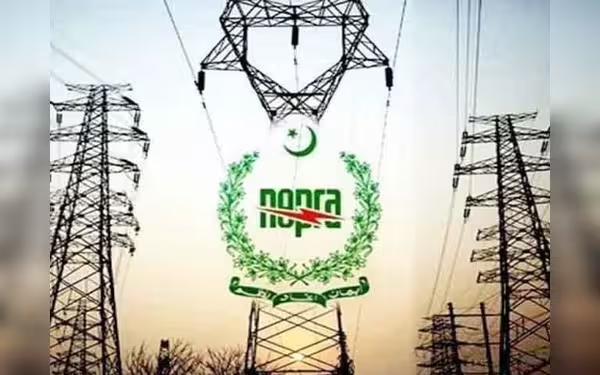Saturday, November 16, 2024 09:51 PM
K-Electric Requests Tariff Reduction Amid NEPRA Hearing
- K-Electric seeks Rs0.16 per unit tariff cut.
- Public raises concerns over favoritism towards KE.
- Transparency in tariff adjustments is crucial for consumers.
 Image Credits: tribune.com.pk
Image Credits: tribune.com.pkK-Electric requests a Rs0.16 per unit tariff cut during a NEPRA hearing, raising public concerns about favoritism and transparency.
K-Electric (KE), the prominent power supplier in Karachi, has recently made a significant request to the National Electric Power Regulatory Authority (NEPRA) for a reduction in the power tariff. Specifically, KE is seeking a decrease of Rs0.16 per unit, which is attributed to fuel cost adjustments (FCA) for the month of September 2024. This request was made during a heated hearing held by NEPRA, where various stakeholders gathered to discuss the implications of such a tariff change.
During the hearing, tensions escalated when a member of the public raised concerns about what they perceived as favoritism towards KE. This sentiment reflects a broader frustration among consumers who often feel the burden of rising electricity costs. The public's skepticism is not unfounded, as many have experienced the impact of fluctuating tariffs on their monthly bills.
Fuel cost adjustments are a common practice in the energy sector, allowing companies like KE to adjust their tariffs based on the changing costs of fuel used to generate electricity. However, the process can be complex and often leads to confusion among consumers. Many people are left wondering how these adjustments are calculated and why they sometimes result in higher bills.
As the hearing progressed, it became clear that the issue of transparency in tariff adjustments is crucial. Consumers deserve to understand how their electricity rates are determined and what factors influence these changes. NEPRA's role in regulating these tariffs is vital, as it ensures that power companies operate fairly and that consumers are not taken advantage of.
The request for a tariff cut by K-Electric highlights the ongoing challenges faced by both power suppliers and consumers in Pakistan's energy sector. As discussions continue, it is essential for NEPRA to maintain a balance between the needs of the power companies and the rights of consumers. Ultimately, a transparent and fair pricing system will benefit everyone involved, fostering trust and stability in the energy market.













